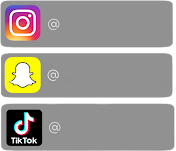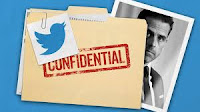FINAL BLOG POST: TECHNOLOGY
In the digital age, my relationship with technology is a journey that I am still working through.
The Good
My online presence includes Instagram, TikTok, LinkedIn, Facebook, and Snapchat. Each platform shows a different side of my life.
Instagram is where I share photos with a large audience of friends and mutuals during holidays, sports events, and birthdays. TikTok is more of a place where I share my personality through fun dances and bits. LinkedIn describes my journey as a sports media and marketing student, complete with a headshot. It also is how I participate in professional networking.
Facebook, a place I solely connect with close family and friends, is where I share memories and personal accomplishments, while Snapchat is a place I can share parts of my daily life with videos to select groups of people.Each of these platforms serves a different purpose, but all help capture memories. I feel that is what is most special about social media, and it is why people are constantly sharing. Everyone is afraid of forgetting the great moments, so we capture and share them to hold onto the memories.
The Bad
The internet creates the negative opportunity to always know what others are doing, which can make you feel excluded and disconnected from the present moment. It creates a strong awareness of events you might have missed. This is a realization my mom often mentions, saying, "30 years ago, you wouldn't even know these things were happening."
Technology has also evolved to the point where it can affect relationships. Instant messaging, a topic I focused on for my first EOTO, brings both convenience and conflict. Read receipts and showing when someone is online gives you more information than you always need to know, and maybe more than the person you are speaking with wants you to know. It can lead to unrealistic assumptions about our relationships. I have luckily learned to manage this by turning off notifications and logging out of my socials for a few hours at a time. This allows me to not feel like I am constantly waiting for a response from people.
My Feelings About Technology
Scrolling is a part of my daily routine, and I see a fine line between its advantages and disadvantages. Instant access to news and self-care information is a huge upside of the internet. It teaches you, can make you feel understood, and can give you information you may urgently need. This is a positive.
The negative is that the internet has unfortunately progressed to a point where unattainable standards in terms of looks, body image and ways of living can dictate followers' emotional state.
I notice with myself and my friends and family that there is a need for validation through likes and followers. This is not where someone’s self-esteem should be based from
In conclusion, my relationship with technology is somewhere between the perks of social media and the discomfort of feeling isolated. It often shapes emotions, and I am working to navigate this. I need to take advantage of all the great things technology has given us, because it has positively transformed the way we live, work, and interact, and I need to stay away from the negative, constant exposure to online content that portrays unrealistic standards.











